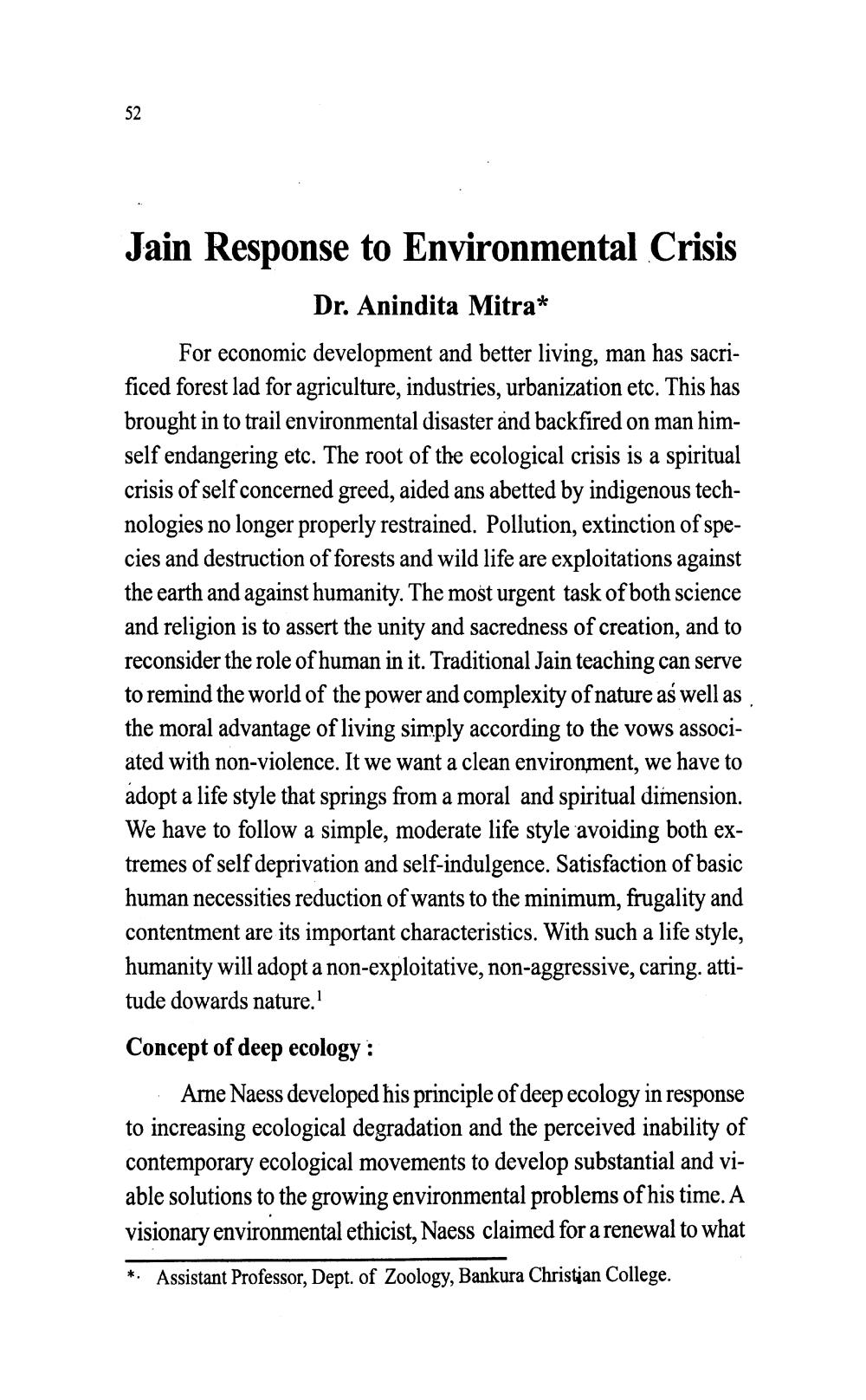________________
Jain Response to Environmental Crisis
Dr. Anindita Mitra* For economic development and better living, man has sacrificed forest lad for agriculture, industries, urbanization etc. This has brought in to trail environmental disaster and backfired on man himself endangering etc. The root of the ecological crisis is a spiritual crisis of self concerned greed, aided ans abetted by indigenous technologies no longer properly restrained. Pollution, extinction of species and destruction of forests and wild life are exploitations against the earth and against humanity. The most urgent task of both science and religion is to assert the unity and sacredness of creation, and to reconsider the role of human in it. Traditional Jain teaching can serve to remind the world of the power and complexity of nature as well as the moral advantage of living simply according to the vows associated with non-violence. It we want a clean environment, we have to adopt a life style that springs from a moral and spiritual dimension. We have to follow a simple, moderate life style avoiding both extremes of self deprivation and self-indulgence. Satisfaction of basic human necessities reduction of wants to the minimum, frugality and contentment are its important characteristics. With such a life style, humanity will adopt a non-exploitative, non-aggressive, caring. attitude dowards nature. Concept of deep ecology:
Arne Naess developed his principle of deep ecology in response to increasing ecological degradation and the perceived inability of contemporary ecological movements to develop substantial and viable solutions to the growing environmental problems of his time. A visionary environmental ethicist, Naess claimed for a renewal to what
*. Assistant Professor, Dept. of Zoology, Bankura Christian College.




